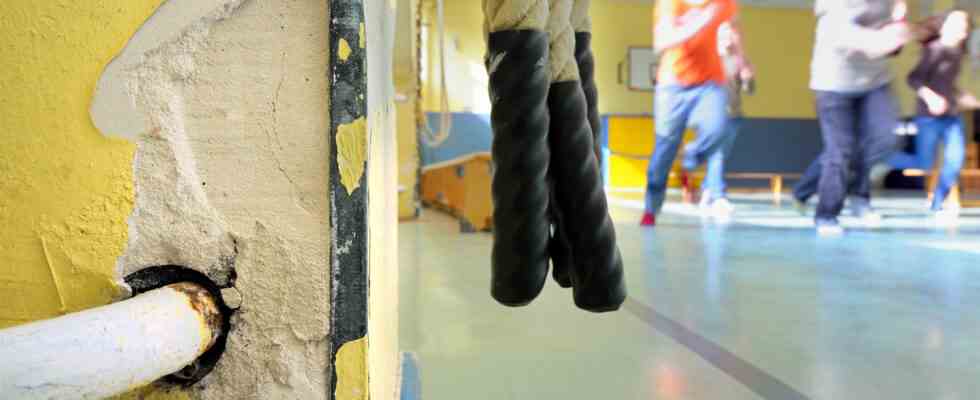Status: 04.01.2023 08:03
Whether roads, schools or the swimming pool have been renovated also depends on where you live. Most cities and municipalities are in debt. Miracles are rare but possible.
From the notorious miser to the generous giver – what sounds like wishful thinking has come true for the city of Mainz. This is made possible by the trade tax revenue, specifically the taxes of the company BioNTech, which achieved fame and considerable income during the corona crisis by developing one of the first vaccines.
More than ten billion euros profit in 2021 – this flushed one billion euros into the coffers of the state capital. Mayor and Head of Finance Günter Beck (Greens) calls it “the miracle of Mainz”. A miracle that enabled the heavily indebted city to not just to service the debt, but finally being able to invest after many years of saving. And: The city now pays into the municipal financial equalization system instead of receiving money.
Millions for apartments, schools, swimming pool
In November, the Mainz city council, governed here by a traffic light coalition like in the federal government, decided on the double budget for 2023/24. Climate protection measures, the promotion of children and young people, cultural work, social policy, support for voluntary work and sports clubs – the spectrum is broad.
For example, ten million euros per year are earmarked for residential and commercial space. Almost 80 million euros are available for the renovation, expansion and new construction of schools in Mainz, and around 20 million euros for city daycare centers. And: The ailing Taubertsbergbad, the largest leisure pool in the city, gets a larger injection of funds than originally thought.
Better living: Thanks to BioNTech, Mainz suddenly has money instead of debt.
Image: picture alliance / dpa
But business development is also on the agenda. The trade tax was already adjusted in 2021 to the rate of the rich neighboring town of Ingelheim, headquarters of the pharmaceutical company Boehringer – i.e. lowered. The bottom line is that this costs around a third of the revenue from this tax. However, the company BioNTech will remain at the Mainz location. The company address is significant: An der Goldgrube 12. The source of money for the city continues to flow for the time being.
In Kusel they have to snap
Many towns and districts beyond the state capital can only dream of conditions in Mainz. Kaiserslautern, Kusel, the Donnersberg district – all located in the western Palatinate, all heavily indebted. Per capita debt in Rhineland-Palatinate is almost twice as high as the national average. The nationwide negative record is held by the district of Kusel in the western Palatinate.
What District Administrator Otto Rubly (CDU) would do with a rain of money? “Reduce debt and invest – especially in the infrastructure. More economic development means more trade, more influx, the district would be more attractive for the people.” The compulsion to calculate with an extremely sharp pencil when developing new commercial space has already cost him one or the other settlement. “Because of the cost pressure, we weren’t fast enough.” According to his demand, the country must do more for the structurally weak regions.
Debt forgiveness with a hook
A planned debt relief program is intended to relieve particularly heavily indebted municipalities in the next two years. According to the plan, the state will take over part of the municipal cash advances, a total of three billion euros.
The problem: The affected districts and cities must submit a balanced budget, so they are not allowed to incur any new debt. For the district of Kusel, this would mean that the municipalities would transfer significantly more money to the district – the so-called district levy would rise to 54 percent of municipal income. “Not only impossible, but probably also inadmissible,” complains Rubly.
Other cities and municipalities will therefore probably not be able to participate in the debt relief program. “Where there is already money, there is more money. No wonder when you have the feeling that the region is being left behind.”
The state rejects a hardship regulation, i.e. more money for extremely indebted municipalities. The state audit office also sees too great a burden for the affected cities and districts. The miracle of Mainz will probably remain an isolated case.

